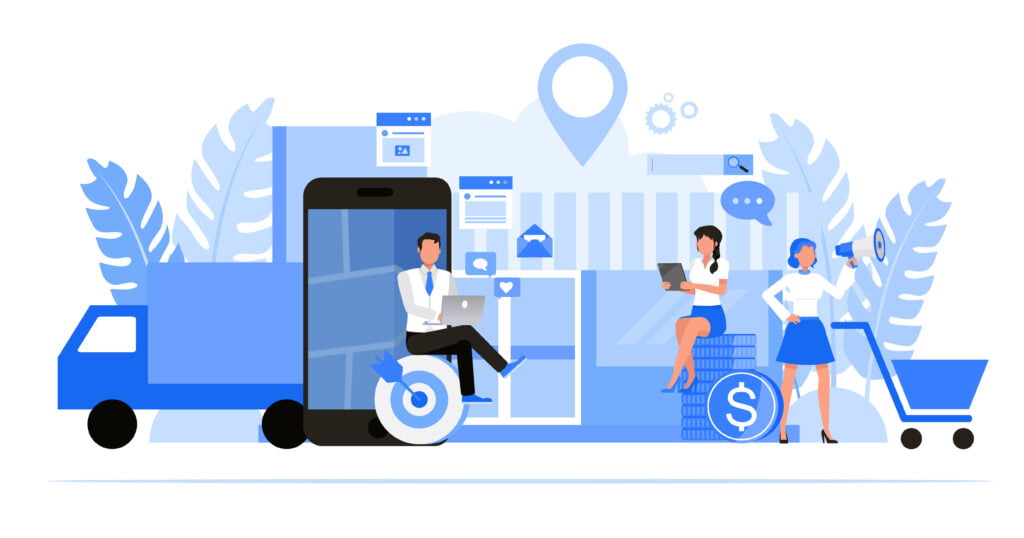In today’s digital age, it’s more important than ever for businesses to stand out and connect with customers in meaningful ways. A successful CRM system can facilitate these efforts and make your company more productive, organised, and collaborative all at the same time. The word “CRM” stands for customer relationship management. It’s a type of business software that helps companies manage interactions with customers. These systems are widely used by businesses of all sizes, from small companies to multinational corporations.
What Is a CRM System?
A CRM system is an integrated software programme that allows businesses to manage customer relationships. Such systems are designed to improve efficiency, effectiveness, and customer satisfaction. There are six key elements of a CRM system:
- Data Capture: A CRM system allows you to gather data on your customers and prospects, including their contact information, demographics, and purchasing history.
- Data Organisation: keep your customer data organised and easily accessible, so that you can make smart decisions in real time based on this data.
- Data Analysis: perform data analysis on your customers and their needs, so that you can make strategic decisions about your marketing and product offerings.
- Data Sharing: share data with other departments in your organisation, such as sales, marketing, and customer service. This allows your employees to work from the same data set and stay on the same page.
- Customer Engagement: easily engage with your customers through multiple channels, including emails, text messages, live chat, and social media, so that you can provide timely and personalised service.
- Reporting and Analytics: track your performance and make data-driven decisions. A good CRM system will allow you to easily access reports and analytics from a central dashboard.

Why Is a Good CRM Important For Your Business?
A CRM system can help your business in a variety of ways, including:
Improved Customer Experience: It can help you manage customer communications and ensure that all interactions are timely and personalised. This can help you reduce customer complaints and improve customer satisfaction.
More Customers: A CRM system can aid you in being more strategic about your marketing efforts, helping you to reach the right audience and make the right offer at the right time. This will allow you to get more customers in the door and make more sales.
Improved Efficiency: A CRM system can help you automate processes and make sure that everyone in your organisation is working from the same page, so that you can avoid costly mistakes and make better decisions.
Better Collaboration: CRM can help you break down silos in your organisation, allowing different departments to work from the same data set and collaborate more effectively.
Types of CRM Software
There are two types of CRM system: on-premises and cloud-based. With an on-premises CRM (or on-site CRM), you essentially buy and install the software on your company’s server. Instead of paying a vendor to host all your CRM information, you store it on your own server, which requires a license. A cloud-based CRM, also known as SaaS CRM (software as a service) is CRM software that is hosted on the CRM provider’s server, and accessible by its customers over the internet. Both types of CRM have different pros and cons to consider, depending on your business type, your company goals and your budget – however cloud hosted CRMs are far more common, are becoming the norm, and can be substantially cheaper to operate than an on-prem solution.

How to Choose the Right One for Your Business
If you’re in the process of evaluating CRM systems, you need to take some key factors into consideration first. The first is your Business Goals: understanding your business goals is the first step toward choosing a CRM system that will help you achieve them. If you want to grow your customer base, you’ll want to find a CRM system that helps you reach new customers. If you want to increase your customer retention rate, you’ll want a CRM system that allows you to better engage with your existing customer base. The next is Customer Segments: you should also consider the different types of customers that you want to reach. If you are targeting different types of customers, you’ll want to find a CRM that allows you to track and manage each segment separately. Thirdly, your Team’s Skill Sets: you should also think about the skill sets of your team members. If some members are more tech-savvy than others, you’ll want a CRM system that is user-friendly and easy to learn. And finally, Pricing: consider your budget. There are many different CRM systems on the market, and they come with different price tags. You should be able to find a CRM system that meets your needs and fits within your budget.
A CRM system can help your business in a variety of ways, including by improving customer experience, getting more customers, improving efficiency, and better collaboration. There are many different types of CRM systems, and you should choose one that fits your business goals, customer segments, skill sets, and pricing.
If you find yourself drowning in spreadsheets and are ready to digitally transform your business or have any questions around CRM – we’d be delighted to hear from you. Click here to contact us.


